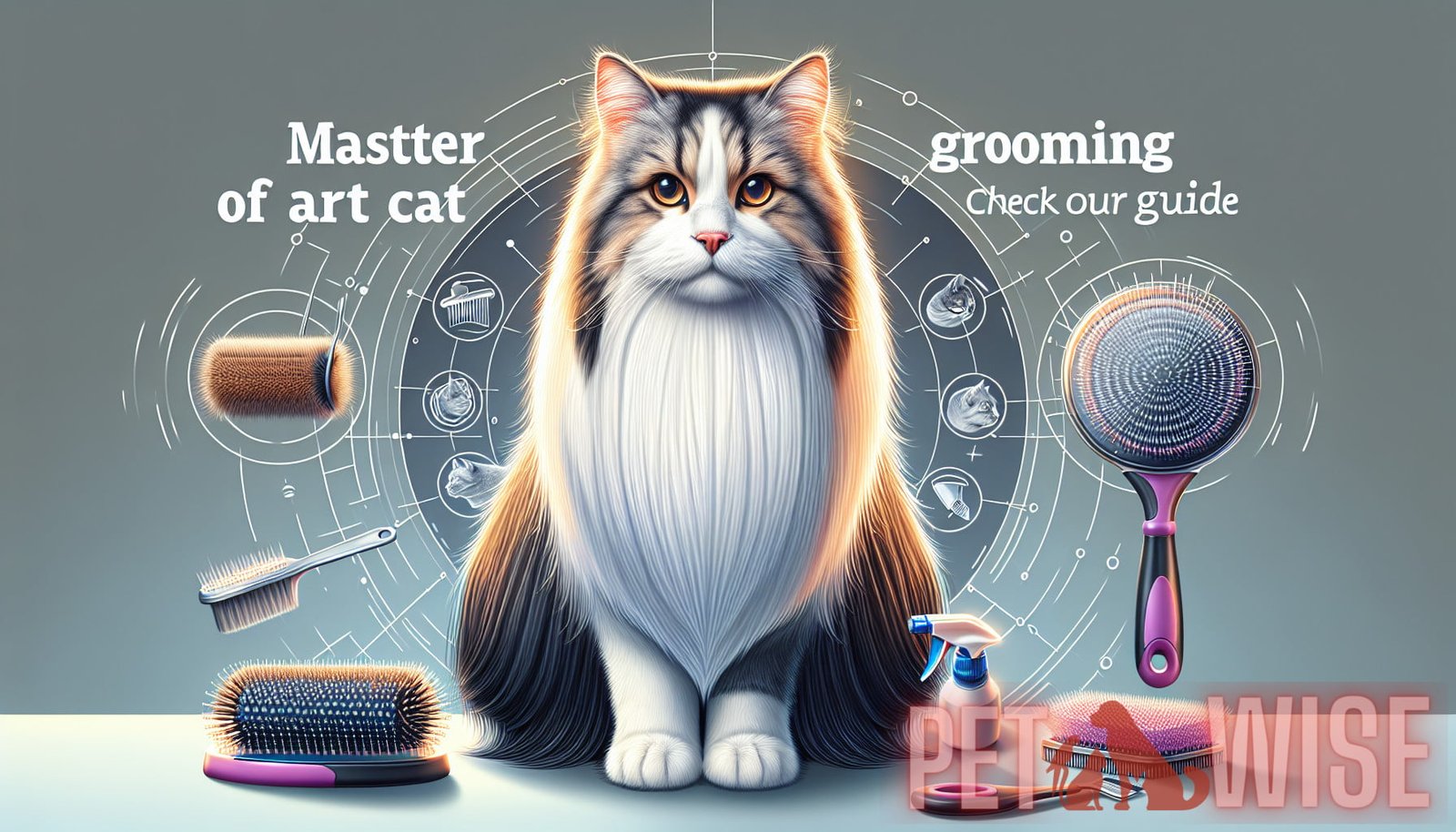Introduction
Unlocking the Natural Brilliance: Revealing the Surprising Secrets to Keeping Your Pet’s Coat Radiant and Healthy
As pet owners, one of our greatest joys is seeing our furry friends with shiny coats that radiate health. A luxurious and lustrous coat not only enhances our pet’s appearance but also indicates overall wellness. However, achieving and maintaining such shiny coats requires more than just good genetics. It involves understanding the secrets behind keeping our pets’ coats in optimal condition. In this article, we will delve into the surprising secrets to unlocking the natural brilliance of your pet’s coat and discuss effective ways to keep it radiant and healthy.
The Science Behind Shiny Coats
Before we dive into the secrets of shiny coats, let’s explore the science behind it. A shiny coat is a result of healthy skin and fur. The skin acts as a protective barrier for the body and plays a crucial role in maintaining overall health. It is the largest organ of the body and performs numerous functions, including insulation, temperature regulation, and protection against external factors.
Underneath the skin, the hair follicles produce hair, which grows and eventually breaks through the skin’s surface. Hair is primarily composed of a protein called keratin. The production of quality hair depends on various factors such as genetics, nutrition, grooming, and overall health. When all these factors work together harmoniously, the result is a shiny and healthy coat.
Factors Affecting Coat Health
- Nutrition: A balanced and nutritious diet is the foundation of a healthy coat. Essential nutrients, including proteins, fatty acids, vitamins, and minerals, support skin and hair health. Omega-3 and omega-6 fatty acids, found in high-quality pet foods, contribute to a shiny coat by nourishing the skin and reducing inflammation.
- Hydration: Proper hydration is crucial for maintaining skin health and preventing dryness, which can lead to a dull coat. Always ensure that your pet has access to clean and fresh water.
- Grooming: Regular grooming plays a vital role in promoting a shiny and healthy coat. Brushing helps remove loose hair, distribute natural oils, and stimulate the skin. It also enhances blood circulation, which in turn promotes hair growth and skin health.
- Environmental Factors: Environmental factors, such as excessive heat or cold, can affect coat health. Extreme temperatures, humidity, and exposure to harsh chemicals or pollutants can lead to skin dryness or itchiness, resulting in a lackluster coat. Ensure that your pet is protected from such conditions.
Unveiling the Secrets to Shiny Coats
Now that we understand the factors that contribute to a healthy and shiny coat, let’s explore the surprising secrets that can unlock the natural brilliance of your pet’s coat:
1. Proper Nutrition
Eating a balanced and nutrient-rich diet is the first secret to maintaining a shiny coat. Ensure that your pet’s diet includes high-quality proteins, omega-3 and omega-6 fatty acids, vitamins, and minerals. These essential nutrients are vital for healthy skin and hair. Consult with your veterinarian to determine the most appropriate diet for your pet’s specific needs.
Feeding your pet a premium pet food brand can also make a significant difference in coat health. Look for pet foods that are formulated to support skin and coat health, as they often contain higher levels of essential fatty acids and other beneficial ingredients.
Internal Link: To learn more about pet nutrition and its impact on coat health, read our article on Nature’s Secrets.
2. Adequate Hydration
Water is essential for maintaining skin hydration and overall health. Ensure that your pet has access to clean and fresh water at all times. Dehydration can lead to dry skin and a dull coat. If you notice signs of dehydration, such as sunken eyes or dry mouth and nose, consult your veterinarian immediately.
3. Regular Grooming
Grooming not only keeps your pet’s coat clean and free of tangles but also stimulates the skin and promotes blood circulation. Regular brushing removes dead hair, distributes natural oils, and prevents matting. The type of brush you use will depend on your pet’s coat type. Consult with your groomer or veterinarian for recommendations.

Internal Link: If you want to master the art of cat grooming, check out our article on cat grooming techniques.
4. Avoid Over-bathing
Bathing your pet too frequently or using harsh shampoos can strip the coat of its natural oils, leading to dryness and dullness. Most pets only require bathing once every 4-6 weeks, but this can vary depending on the individual and their lifestyle. Always use a pet-specific shampoo that is gentle and pH-balanced. If your pet has specific skin conditions, consult your veterinarian for appropriate bathing recommendations.
5. Protect from Sun Damage
Just like humans, pets can suffer from sunburn and skin damage caused by excessive sun exposure. Light-colored or thin-coated pets are more prone to sunburn. To protect your pet’s skin, try to limit their sun exposure during peak hours and provide shade when outdoors. You can also apply pet-safe sunscreen to areas that are more exposed, such as the nose, ears, and belly.
6. Regular Veterinary Check-ups
Regular veterinary check-ups are essential for overall health, including skin and coat. Your veterinarian can identify and address any underlying health issues that may affect your pet’s coat condition. They can also provide advice on specific grooming techniques and products that are suitable for your pet’s needs.
7. Stress Reduction
Stress can negatively impact overall health, including the condition of your pet’s coat. Pets that are stressed may excessively groom or chew on their fur, leading to hair loss and a lackluster coat. Providing a calm and stress-free environment for your pet can help maintain a healthy coat.
Engaging in regular exercise, providing mental stimulation, and creating a peaceful living environment are all ways to reduce stress and promote a shiny coat. If you notice excessive grooming or bald patches on your pet’s coat, consult your veterinarian to rule out any medical conditions.
Frequently Asked Questions
Q1: Can I use human shampoos on my pet?
A1: It is not recommended to use human shampoos on pets. Human shampoos have different pH levels and can dry out your pet’s skin. Always use pet-specific shampoos that are gentle and formulated for their specific needs.
Q2: How often should I brush my pet?
A2: The frequency of brushing depends on your pet’s coat type. Pets with longer or thicker coats may require daily brushing to prevent matting and tangles. Shorter-haired breeds may only require weekly brushing to remove loose hair.
Q3: Can I give my pet supplements for a shiny coat?
A3: While a balanced diet should provide the necessary nutrients for coat health, there are certain supplements that can be beneficial. Omega-3 fatty acid supplements, such as fish oil, can help promote a healthy coat. However, it is important to consult with your veterinarian before adding any supplements to your pet’s diet.
Conclusion
Unlocking the natural brilliance of your pet’s coat is not an impossible task. By understanding the factors that contribute to coat health and implementing the surprising secrets discussed in this article, you can help your furry friend achieve and maintain a shining coat that reflects their overall wellness. Remember to prioritize nutrition, hydration, regular grooming, and protection from environmental factors. Additionally, regular veterinary check-ups and stress reduction techniques can further enhance coat health. With the right knowledge and care, your pet can enjoy a radiant and healthy coat that will make them the envy of the neighborhood.
Note: This article contains general information and should not be substituted for professional veterinary advice. If you have any concerns about your pet’s coat or overall health, consult with a qualified veterinarian.


